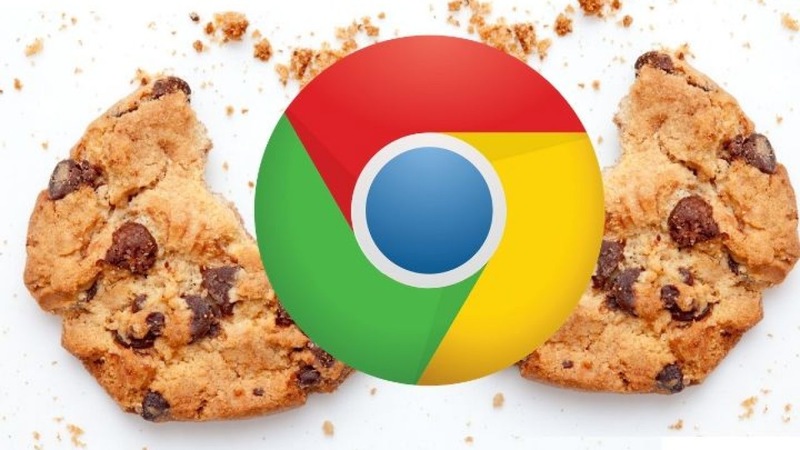Finally gaining traction is one of the most important subjects of 2024: how Google Chrome intends to reinvent digital advertising in the browser with Privacy Sandbox suggestions and how businesses will either embrace or reject the technology.
Google is launching Tracking Protection, a new browser feature that blocks access to third-party cookies from websites when it is enabled, on January 4. First significant step toward deprecating third-party cookies this year, 1% of Chrome users worldwide will have their tracking protection enabled.
READ MORE: “This Is Transformative”: The Reasons Google May Pay US Publishers Billions by 2024
When a participant opens Chrome on a desktop computer or an Android smartphone, they will be presented with the option to “Browse with more privacy.” The second half of the year will see a gradual rollout of the additional 1%. Chrome will display the option to turn off Tracking Protection and go back to using third-party cookies if a test site is unable to perform.

Of course, there are a lot of unknowns, particularly because the results of these tests and the approval of the Competition and Markets Authority of the United Kingdom will determine whether or not full deprecation occurs by year’s end. We know the following.
A shortage of resources hinders the sense of urgency
There has been a step change in urgency, despite the buy-side adoption being extremely slow.
READ MORE: Google Will Settle The App Store Lawsuit By Paying Consumers And The United States $700 Million
Paul Bannister is the chief strategy officer of Raptive, a publisher management platform. Since September, when Google made Privacy Sandbox application-programming interfaces publicly available, Raptive has been using the Protected Audience API—which was rebranded from FLEDGE in April—in ad auctions. Since the beginning of December, he claimed, more marketers have shown a desire to begin testing throughout the ensuing three months.

However, in order to fully implement the transition to privacy-preserving technology, there is a gap between the willingness to test and the capital available to spend in new product development.
Co-founder of the consulting firm Sparrow Advisers Ana Milicevic stated, “I don’t think 2024 is going to be an easy year for those who are still in denial.”
READ MORE: Google Is Introducing Programmatic Bidding For Limited Ads
It’s a catch-22 issue, just like with the adoption of tech earlier. The business requirement to move away from cookies has been absent, but Chrome’s deadline finally confirms it, she continued. Tech businesses need demand before developing the technology.

According to Paul Bland, head of biddable at Havas Media Network U.K., “there will be little to no immediate impact on things like tracking, targeting, or measurement in the short-term, starting with just 1% of browsers being impacted.” “Before making any conclusions, we need more information about the new solution’s efficacy and the extent of its adoption throughout the ad tech industry.”
Since September, Raptive has increased the quantity of Protected Audience APIs offered for sale, but the results are now too limited. Obtaining efficacy statistics is the next conversation to be had while the targeting is operating.
An agency buyer stated they wouldn’t anticipate any impact until at least 30% of cookies were deprecated; they aren’t testing at this time.

The targeting is sound. A problem is attribution.
Targeting, frequency of ads, and measurement are just a few of the features that need to be considered while attempting to completely redesign the digital ad ecosystem within the browser.
Targeting is now the most reliable.
According to Bannister, Google has approximately 75% of what it needs to offer the market, including enhanced features and documentation.
Eric Wheeler, CEO of publisher ad-tech platform 33Across, declared, “Measurement will break.” Since programmatic measurement relies on third-party cookies, a large number of data inaccuracies are to be expected. The ability of Google Analytics to monitor activity inside its walled garden will present significant upstream issues.
The agency buyer went on to say that since many marketers use pixel solutions across platforms like Meta, the industry may need to reconsider prior standards.

The dynamics of auctions will change as Google expands the number of people who can access Tracking Protection to 1% in the second half of 2024.
“As part of the cookie inflation, we can also expect to see rising CPMs (cost per thousand impressions) for third-party cookies due to a shrinking pool of available third-party cookie inventory,” stated Wheeler. “Companies’ performance will improve the faster they find interoperable, scalable solutions.”
Some people are unaware of the size of the meteor that is approaching them.
Paul Bannister, Raptive’s chief strategy officer
The Trade Desk, a longtime supporter and rival of Google in the open internet, has openly criticized Privacy Sandbox for what it sees as lowering ad costs and slowing down page loads, as well as for further solidifying Google’s hegemony in the ad-tech sector and keeping out other publishers and marketers hoping to profit from the open web.
There is no denying that there are too many ad-tech companies. It’s probably not a bad thing if some of those businesses close their doors when Chrome deprecates, according to Bannister.
However, nobody wants to see a large portion of the market collapse, including Google and the CMA.
For Raptive, this entails assessing the revenue impact of cookie deprecation and persuading stakeholders such as important supply-side and demand-side platforms to at least track the users in the 1% test.
Publishers must also ensure that they are using the most recent version of Prebid, the open source suite of solutions for publishers, and that SSP adaptors supporting Protected Audiences are enabled.
According to Bannister, “some people are unaware of the magnitude of the meteor that is coming their way.”
Radiant and America Nu, offering to elevate your entertainment game! Movies, TV series, exclusive interviews, music, and more—download now on various devices, including iPhones, Androids, smart TVs, Apple TV, Fire Stick, and more.



